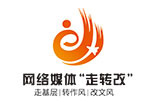AIG raises $1.25b selling PICC stock near bottom of range
(Bloomberg) Updated: 2016-05-03 08:22American International Group Inc raised $1.25 billion selling shares of Chinese insurer PICC Property & Casualty Co near the low end of a marketed range.
The largest commercial insurer in the United States and Canada sold 740 million shares of PICC P&C at HK$13.08 ($1.69) apiece, after earlier offering them at HK$13.06 to HK$13.35, according to terms for the deal obtained by Bloomberg. The price represents a 7.9 percent discount to the stock's last close.
AIG Chief Executive Officer Peter Hancock, under pressure from activist investors John Paulson and Carl Icahn to boost returns and simplify operations, announced in January he was creating a new legacy portfolio. That book includes about a quarter of the company's equity and is comprised of discontinued businesses and investments that AIG plans to exit. The PICC P&C holding is one of the easier ones to sell, given that the stock is publicly traded in Hong Kong.
"On the legacy portfolio, we think that the right metric for success is how quickly we can extract capital by either divestitures, reinsurance, or other efficient runoff methods without giving away too much of our book value," Hancock said in a Jan 26 presentation. The CEO plans to free up about $9 billion as part of a two-year plan to fund $25 billion of share buybacks and dividend payments.
AIG owned about 851 million shares in Beijing-based PICC P&C at the end of December, according to data compiled by Bloomberg. After the sale, AIG is subject to a 60-day lockup on its remaining stake, according to the terms. Morgan Stanley was among banks that arranged the sale, the terms show.
AIG bought about 1.1 billion shares at HK$1.80 each in the initial public offering of PICC P&C in 2003, data compiled by Bloomberg show. The US insurer also took part in PICC P&C's rights offerings in recent years at subscription prices of less than HK$8.
Last year, AIG pared its stake via two major transactions, selling 256.5 million shares at HK$15.15 each in March and then disposing of another 361 million shares at HK$16.14 apiece in December, data compiled by Bloomberg show.
- Outbound realty investment doubles in 2015
- Purefine aims to tap into thriving formula market
- ChAFTA already 'delivering' on trade
- China's manufacturing activity rebounds to nine-month high
- Hongda sees big demand for biometric ID systems
- Online literature is inspiring top-grossing Chinese movies
- Financial world watches China to assess effect of the tax reform
- Cosmetics maker Shanghai Jahwa acquires Tommee Tippee owner

















